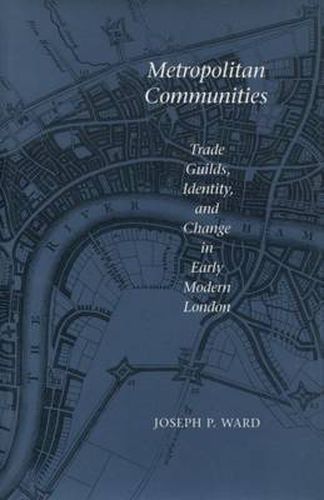Readings Newsletter
Become a Readings Member to make your shopping experience even easier.
Sign in or sign up for free!
You’re not far away from qualifying for FREE standard shipping within Australia
You’ve qualified for FREE standard shipping within Australia
The cart is loading…






Many long-held assumptions of historians and literary critics are sharply challenged in this interpretation of the cultural consequences of social, economic, and political change in early modern London. During the sixteenth and seventeenth centuries, greater London’s population nearly quintupled, surpassing 500,000 before 1700, making it Europe s largest metropolis. Contemporaries often complained that the many problems accompanying this urban development were the result of immigrants flocking to the rapidly expanding suburbs around the City of London. Such complaints assumed that immigrants chose to live outside the City in order to avoid the economic oversight of its trade guilds. Sharing such assumptions, many scholars have found an inherent conflict between residents of the traditional, orderly City and those of the relatively licentious suburbs. According to their view, this conflict encouraged both the decline of the guilds and the appearance of new forms of representation in Renaissance literature, notably in the plays staged in suburban theatres. The author offers an alternative to this view of London’s expansion.
$9.00 standard shipping within Australia
FREE standard shipping within Australia for orders over $100.00
Express & International shipping calculated at checkout
Many long-held assumptions of historians and literary critics are sharply challenged in this interpretation of the cultural consequences of social, economic, and political change in early modern London. During the sixteenth and seventeenth centuries, greater London’s population nearly quintupled, surpassing 500,000 before 1700, making it Europe s largest metropolis. Contemporaries often complained that the many problems accompanying this urban development were the result of immigrants flocking to the rapidly expanding suburbs around the City of London. Such complaints assumed that immigrants chose to live outside the City in order to avoid the economic oversight of its trade guilds. Sharing such assumptions, many scholars have found an inherent conflict between residents of the traditional, orderly City and those of the relatively licentious suburbs. According to their view, this conflict encouraged both the decline of the guilds and the appearance of new forms of representation in Renaissance literature, notably in the plays staged in suburban theatres. The author offers an alternative to this view of London’s expansion.